Filter by
# Debug Box
/var/www/htdocs/pustaka-digital/lib/SearchEngine/SearchBiblioEngine.php:688 "Search Engine Debug 🔎 🪲"
Engine Type ⚙️: "SLiMS\SearchEngine\SearchBiblioEngine"
SQL ⚙️: array:2 [ "count" => "select count(sb.biblio_id) from search_biblio as sb where sb.opac_hide=0 and (sb.call_number LIKE :callnumber)" "query" => "select sb.biblio_id, sb.title, sb.author, sb.topic, sb.image, sb.isbn_issn, sb.publisher, sb.publish_place, sb.publish_year, sb.labels, sb.input_date, sb.edition, sb.collation, sb.series_title, sb.call_number from search_biblio as sb where sb.opac_hide=0 and (sb.call_number LIKE :callnumber) order by sb.last_update desc limit 10 offset 40" ]
Bind Value ⚒️: array:1 [ ":callnumber" => "1%" ]
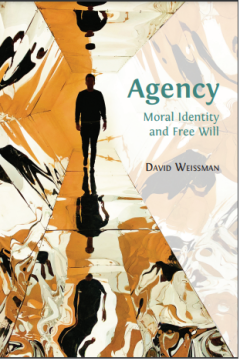
Agency : Moral Identity and Free Will
There is agency in all we do: thinking, doing, or making. We invent a tune, play, or use it to celebrate an occasion. Or we make a conceptual leap and ask more abstract questions about the conditions for agency. They include autonomy and self-appraisal, each contested by arguments immersing us in circumstances we don’t control. But can it be true we that have no personal responsibility for al…
- Edition
- -
- ISBN/ISSN
- 9781783748778
- Collation
- vi, 212p,: ill
- Series Title
- -
- Call Number
- 123.5 DAV
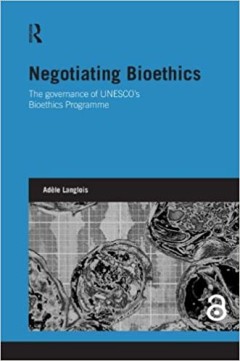
Negotiating bioethics: the governance of UNESCO's bioethics programme
The sequencing of the entire human genome has opened up unprecedented possibilities for healthcare, but also ethical and social dilemmas about how these can be achieved, particularly in developing countries. UNESCO's Bioethics Programme was established to address such issues in 1993. Since then, it has adopted three declarations on human genetics and bioethics (1997, 2003 and 2005), set up nume…
- Edition
- -
- ISBN/ISSN
- 9780203101797
- Collation
- xvi, 192 p.
- Series Title
- -
- Call Number
- 174.2 ADE n
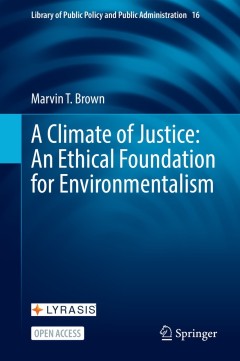
A climate of justice: An ethical eoundation for environmentalism
This open access book helps readers combine history, politics, and ethics to address the most pressing problem facing the world today: environmental survival. In A Climate of Justice, Marvin Brown connects the environmental crisis to basic questions of economic, social, and racial justice. Brown shows how our current social climate maintains systemic injustices, and he uncovers resources for ch…
- Edition
- -
- ISBN/ISSN
- 9783030773632
- Collation
- xix, 185p ; ill
- Series Title
- -
- Call Number
- 179.1 BRO a

Friendship and technology : a philosophical approach to computer mediated com…
This book explores the nature of technology – participatory media in particular – and its effects on our friendships and our fundamental sense of togetherness. Situating the notion of friendship in the modern era, the author examines the possibilities and challenges of technology on our friendships. Taking a media ecology approach to interpersonal communication, she looks at issues around p…
- Edition
- -
- ISBN/ISSN
- 9781003188810
- Collation
- xi, 156 p. : ill
- Series Title
- -
- Call Number
- 158.25 PET f
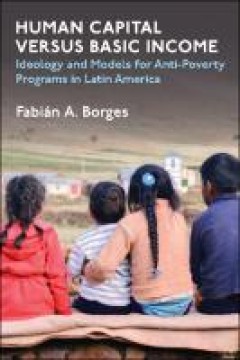
HUMAN CAPITAL VERSUS BASIC INCOME : ideology and models of anti-poverty progr…
Latin America underwent two major transformations during the 2000s: the widespread election of left-leaning presidents (the so-called left turn) and the diffusion of conditional cash transfer programs (CCTs)—innovative social programs that award regular stipends to poor families on the condition that their children attend school. Combining cross-national quantitative research covering the ent…
- Edition
- -
- ISBN/ISSN
- 9780472902774
- Collation
- xv, 288 p. : ill.
- Series Title
- -
- Call Number
- 130.63 BOR h
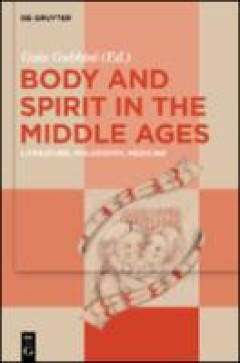
Body and spirit in the Middle Ages : literature, philosophy, medicine
A crucial question throughout the Middle Ages, the relationship between body and spirit cannot be understood without an interdisciplinary approach – combining literature, philosophy and medicine. Gathering contributions by leading international scholars from these disciplines, the collected volume explores themes such as lovesickness, the five senses, memory and passions, in order to shed new…
- Edition
- -
- ISBN/ISSN
- 9783110615937
- Collation
- vi, 290. : ill.
- Series Title
- -
- Call Number
- 128.20902 GUB b
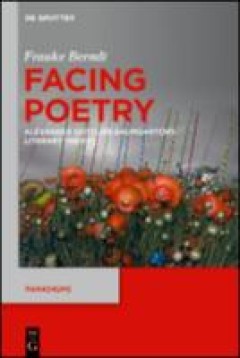
Facing poetry : alexander gottlieb baumgarten's theory of literature
What is Literature? According to Alexander Gottlieb Baumgarten, Literature is perfect sensate discourse. Based on this insight Baumgarten offers the first modern theory of literature. His uniquely holistic approach encompasses a methodology, epistemology, metaphysics, narratology, and ethics.
- Edition
- -
- ISBN/ISSN
- 9783110624519
- Collation
- 238 p.
- Series Title
- -
- Call Number
- 111.85092 ANT f
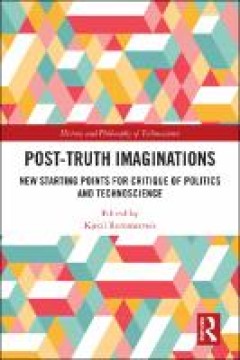
Post-Truth Imaginations : New Starting Points for Critique of Politics and Te…
This book engages with post-truth as a problem of societal order and for scholarly analysis. It claims that post-truth discourse is more deeply entangled with main Western imaginations of knowledge societies than commonly recognised. Scholarly responses to post-truth have not fully addressed these entanglements, treating them either as something to be morally condemned or as accusations against…
- Edition
- -
- ISBN/ISSN
- 9780429053061
- Collation
- 238p.
- Series Title
- History and Philosophy of Technoscience
- Call Number
- 177.3 KJE p
Critical Thinking in Higher Education and Labour Market
This book presents the comprehensive investigation of critical thinking in higher education from the perspectives of the study and labor market. It looks for an answer to the vibrant question of what and to whom critical thinking is. The study brings together findings from systematic literature review, analysis of descriptions of higher education study programs and study subjects, phenomenograp…
- Edition
- Vol. 86
- ISBN/ISSN
- 9783631861479
- Collation
- 524 p.
- Series Title
- Erziehungskonzeptionen und Praxis, 86
- Call Number
- 153.4 IND c
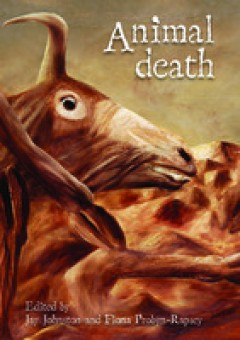
Animal death
Animal death is a complex, uncomfortable, depressing, motivating and sensitive topic. For those scholars participating in Human-Animal Studies, it is – accompanied by the concept of 'life' – the ground upon which their studies commence, whether those studies are historical, archaeological, social, philosophical, or cultural. It is a tough subject to face, but as this volume demonstrates, on…
- Edition
- -
- ISBN/ISSN
- 9781743325247
- Collation
- xv. :ill. ;351 p.
- Series Title
- -
- Call Number
- 179.3. JAY a
 Computer Science, Information & General Works
Computer Science, Information & General Works  Philosophy & Psychology
Philosophy & Psychology  Religion
Religion  Social Sciences
Social Sciences  Language
Language  Pure Science
Pure Science  Applied Sciences
Applied Sciences  Art & Recreation
Art & Recreation  Literature
Literature  History & Geography
History & Geography